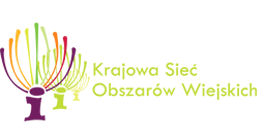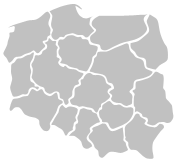EIP-AGRI Newsflash: Experts needed for Focus Group
Experts wanted for EIP-AGRI Focus Groups: deadline 10 September 2018
*Please note there has been a change of date for the first meeting of
FG 33: Pests and diseases of the olive tree*
Following feedback received from olive growers regarding the dates originally set, it has become clear that holding the first meeting in November, which is still within harvesting season, may mean that it would be difficult for olive growers to attend. As the participation of olive growers in the Focus Group is crucial to its success, we have decided to change the dates to 15-16 January 2019.
Do you have practical experience or specific knowledge on:
- Non-chemical weed management in arable cropping systems
- Pests and diseases of the olive tree
Read the call text and apply for the two new Focus Groups (you can find the link to the application form in the PDF call text)
If you have experience with one of these issues and could help find practical solutions, then please apply! If you know other people who may be interested, then please forward this email to them.
Closing date for applications:
Monday 10 September 2018 23:59 hrs CET (Brussels time)
Focus Group: 'Non-chemical weed management in arable cropping systems'
- First meeting: 21-22 November 2018
Weeds compete with crops for water, nutrients and sunlight. Some weeds can also be a host for pests and diseases that can be transmitted to the crops. As weeds therefore threaten crop yield and quality, farmers fight against them and the most common weed management practice is the use of herbicides. Agriculture in the EU and worldwide has become increasingly dependent on the use of herbicides and of pesticides in general, which has helped boost agricultural yield and food production. At the same time, pesticides can have effects on the environment, non-target organisms and animal and human health. Therefore, EU and Member State policies seek to reduce reliance on pesticides by designing and implementing more integrated approaches for pest management, while at the same time safeguarding the competitiveness of agriculture in the EU.
Developing and/or promoting non-chemical weed management techniques could contribute to reducing the risks linked to the use of pesticides. These management techniques range from preventive to curative strategies (e.g. crop rotation, cropping systems, tillage, mechanical weed control, use of alternatives to critical active substances) and cover both the organic and the conventional sectors. Also, assessing current zero-tolerance weed strategies and perceptions of risks at medium-long term through adapted decision support tools could help rationalise and limit the use of herbicides.
Focus Group: 'Pests and diseases of the olive tree'
- First meeting: 15-16 January 2018 (new dates)
Over 750 million olive trees are cultivated worldwide, 95% of which are in the Mediterranean region. Most of the global olive production comes from Southern Europe, North Africa and the Near East. In the EU, olive trees are grown in Italy, Spain, Greece, Portugal, France, Cyprus, Slovenia, Croatia and Malta and the structure of production is often fragmented (small/medium-sized holdings).
Olive production varies greatly and depends on the alternate bearing cycle of the olive tree (a good harvest followed by a poor one), farming methods (use of irrigation), olive varieties, the soil and climate conditions. Olive trees can grow in poor, stony soil where it would be difficult to grow other crops. Consequently, they play an important environmental role (fixing soils, biodiversity). The peak in activity occurs in Autumn, which makes it compatible with other agricultural and non-agricultural activities. Traditional olive-growing is labour intensive during particular periods of the year, and it is an important part of the heritage and socio-cultural life across Mediterranean rural areas.
Trade and the movement of goods and people, climatic variations and changes in farming practices have facilitated the introduction, spread and establishment of pests and diseases. Several insects, diseases, nematodes and weeds affect olive trees, and the number of these occurrences has dramatically increased over the last years, causing serious damage to the overall olive production. Pesticides are often used to protect the olive crop against pests and disease attacks. However, there is increased concern about the effects of pesticides on the environment, human health and product quality. Recognising and understanding the nature of these pathogens and understanding the interactions between crop, climate, environment and pathogens are essential to minimise crop losses and economic damage. The Focus Group will explore more sustainable farming practices, including using non-chemical pesticides, tackling the whole cycle of diseases and pests in olive production: their prevention, detection, management and control. Work shall address both conventional and organic systems.
EIP-AGRI Focus Groups bring together 20 experts, including farmers or foresters, advisers, researchers and agri-business representatives, to collect and summarise knowledge on best practices in a specific field, listing problems as well as opportunities.
They take stock of the state of play in research and practice and highlight possible solutions to the problems identified. Based on this, the groups suggest and prioritise innovative actions.
They identify ideas for applied research and for testing solutions in the field, and propose ways to disseminate good practices and inspire further action.
Read the EIP-AGRI brochure on Focus Groups
(available in: EN – EE – ES – FI – FR – IT – RO)
The EIP-AGRI Service Point is based in Brussels. You can reach us from Monday to Friday from 9:00 – 17:00. By phone +32 2 543 73 48 or email servicepoint@eip-agri.eu
Further information can be found on the EIP-AGRI homepage












